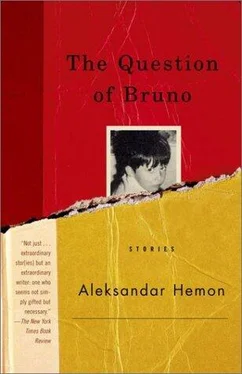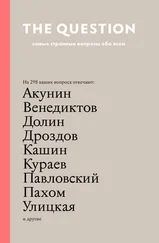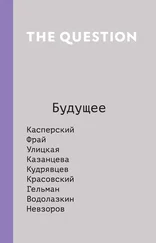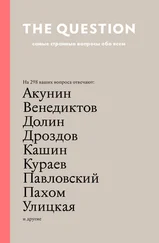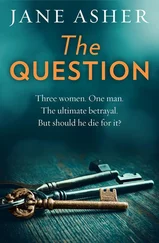Alphonse Kauders said to Eva Braun — in bed, after seven mutual, consecutive orgasms, four of which had gone into the annals — Alphonse Kauders said to Eva Braun: “One should find a way of forbidding people to talk, especially to talk to each other. People should be forbidden to wear watches. Anything should be done with people.”
It is widely believed that the little-known pornographic work Seven Sweet Little Girls , signed by pseudonym, was written by Alphonse Kauders.
Alphonse Kauders told, in the course of time, about the first days of the Revolution: “We killed all mad horses. We set empty houses on fire. We saw soldiers weeping. Crowds gushed out of prisons. Everybody was scared. And we had nothing but a bad feeling.”
Albeit Alphonse Kauders hated folk from the depths of his soul, almost as much as he hated horses (Good God, how Alphonse Kauders hated horses!), he was the creator of a folk proverb: “Never a bee from a mare.”
Joseph V. Stalin, talking about the winds of Alphonse Kauders, said: “Many a time, in the course of our Central Committee sessions, Comrade Kauders would, well, cut a wind, and a few moments later, all comrades would be helplessly crying. Including myself, as well.”
Alphonse Kauders owned the revolver used to murder Lola, a twelve-year-old prostitute from Marseilles.
Ivo Andric, talking about Alphonse Kauders, said: “His in-sides were removed by a secret operation. All that remained was a sheath of skin, within which he safely dreamt of a bibliography of pornographic literature.”
Alphonse Kauders spent the night between April 5 and April 6, 1941, on the slopes of Avala, waiting to see Belgrade in flames.
Alphonse Kauders killed his dog Rex with gas after Rex had tried to slaughter him in his sleep because Alphonse Kauders had set mousetraps all over their place to take revenge on Rex for having pissed on his new, pristine uniform.
Alphonse Kauders, in the course of time, was engaged in painting. The only painting that has been preserved, oil on canvas, is called The Class Roots of Tattooing and is kept in the National Museum in Helsinki.
Alphonse Kauders said to Josip B. Tito: “A few days, or years, hell, ago, I noticed that a tree under the window in one of my seven rooms had grown some ten goddamn meters. There aren’t many people who notice trees growing at all. And those who do are likely to be lumberjacks.”
Gavrilo Princip, talking about the winds of Alphonse Kauders, said: “They sounded like this: Pffffffuuummmiiuujmmsghhhss.”
Alphonse Kauders had two legal sons and two legal daughters. The rest were illegal. One son was shot as a war criminal in Madona, Lithuania; the other was a distinguished member of the Australian national cricket team. One daughter was an interpreter at the Yalta conference; the other discovered, in the Amazon rain forests, a hitherto unknown species of an insect resembling the bee, labeled eventually Virgo Kauders.
Alphonse Kauders said: “Literature has nothing human in itself. Nor in myself.”
Alphonse Kauders never finished work on the bibliography of pornographic literature.
NOTES
J. B. TITO was the Yugoslav communist leader for thirty-five long years. My childhood was saturated with histories of his just enterprises. My favorite one has always been the one in which he, at the age of twelve, found a whole, cooked pig’s head in the house pantry, hoarded for Christmas, and, without telling his brothers and sisters, gorged himself with it on his own — an ominous act for a future communist head of a state. He was sick for days afterward (fat overdose), and was additionally punished by being banned from the Christmas dinner. Later on, he lost interest in Christmas, but never lost passion for pigs and heads.
ROSA LUXEMBURG was a German communist who attempted, with Karl Liebknecht, a socialist revolution in Germany after the end of World War I, and then withered with it. Rosa Luxemburg was a terribly nice name for a revolutionary.
KING ALEXANDER was a Yugoslav king and was assassinated in Marseilles, in 1934, by a Macedonian nationalist, with a generous support of Croatian fascists. Rickety propaganda machinery of the first Yugoslavia sermonized that his last words were: “Take care of my Yugoslavia.” The likely truth, however, was that he gobbled and bolted his own blood, while a sweaty French secret policeman was protecting, with his own body, Alexander’s ex-body, corpse-to-be. I always thought that the fact that an Alexander was assassinated by a Macedonian was as close as you can get to a nice touch in a farce.
RICHARD SORGE was a Soviet spy in Tokyo, undercover as a journalist, eventually becoming a press attaché in the German embassy. He informed Stalin that Hitler was going to attack the Motherland, but Stalin trusted Hitler and disregarded the information. The first time I read about Sorge I was ten and, not even having reached the end of the book, decided to become a spy. At the age of sixteen, I wrote a poem about Sorge entitled The Loneliest Man in the World. The first verse: “Tokyo is breathing and I am not.”
GAVRILO PRINCIP was the young Serb who assassinated the Austrian Archduke Franz Ferdinand Habsburg and Sophia, his pregnant wife, thus effectively commencing World War I. He was eighteen at the time (I think) and had the first scrub over his thin lip and dark ripples around his eyes. He was incarcerated for life, which lasted only a few more years, and died of tuberculosis, blessed by repeated beatings, in an obscure imperial prison. In Sarajevo, by the Latin Bridge, at the corner from which he sent those historical bullets into the fetus’s brain, his footprints were immortalized in concrete (left foot W-E, right foot SE-NW). When I was a little boy, I imagined him waiting for the Archduke’s coach, waiting to change the course of history, stuck up to his ankles in wet concrete. When I was sixteen, my feet fit perfectly into his feet’s tombs.
THE ENCYCLOPEDIA OF THE USSR is a book whose different editions are innumerable and often obscure. Historical characters (like Stalin’s Secret Police chiefs) would be praised in one edition and then would be vanished in another. There are countries whose precious minerals (with annual production in parentheses) would be minutely listed by the encyclopedia’s sanguine world map, and in another edition they would be swallowed by an ocean, much like Atlantis, without the bubble-burps ever reaching the surface of the map world. This great book teaches us how the verisimilitude of fiction is achieved by the exactness of the detail.
THE ENCYCLOPEDIA OF YUGOSLAVIA, on the other hand, was never even close to being entirely published, because of so many conflicting histories involved, so there really isn’t any encyclopedic Yugoslavia, which by a snide turn of history, couldn’t matter less, since Yugoslavia is not much of a country anymore.
NIKOLAI BUKHARIN, dubbed by Lenin “the darling of the Party,” was a member of the Politburo and probably the main Soviet ideologue (save the great Stalin) in the thirties, for which he was rewarded with an accusation of spying, simultaneously, for the United States, Great Britain, France, and Germany. No one was surprised, but everyone was terrified when he was sentenced to death, for that was the beginning of one of Stalin’s greatest purges. From his death cell, he sent a letter to Stalin, beginning with the words: “Koba, why did you need my death?”, which Stalin is believed to have kept in his desk drawer for a long time. Bukharin voluntarily cooperated with his inquisitors and refused to be used as the martyr of Stalin’s tyranny. If he is in a Dantesque inferno, he’ll eternally bang his porcine head against the walls of hell’s pantry.
Читать дальше
